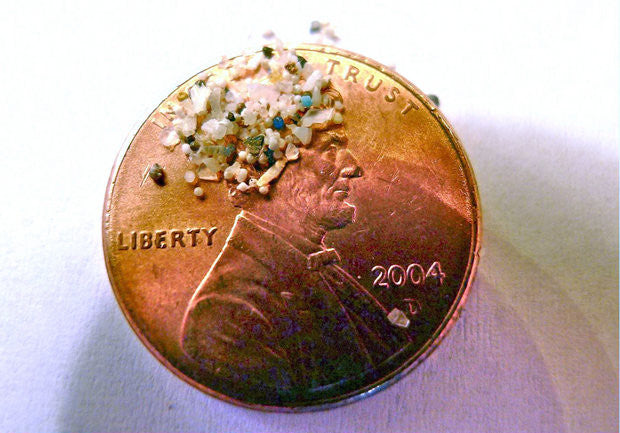Consumers that were unaware of the plastic microbeads in many standard household cosmetic products will no longer be accidentally polluting waterways, thanks to a bill signed by President Obama on December 28, 2015. The "Microbead-Free Waters Act of 2015," (H.R. 1321) bans the manufacture and sale of rinse-off cosmetics that contain intentionally-add plastic microbeads.
Currently, microbeads are present as an abrasive and exfoliating agent in personal care products like toothpaste, body scrubs and facial scrubs. While companies work to phase them out of products during the next few years, consumer awareness has increased and many people are trying to avoid buying these products. One way to tell whether a product contains plastic beads is to look for polyethylene or polypropylene in the list of ingredients; these are the most commonly used types of plastic for microbeads.

The 5 Gyres Institute collected samples of plastic microbeads in eastern Lake Erie and displayed them on the face of a penny in this 2012 photo. photo via 5Gyres.org
The lightweight plastics are hard to remove in wastewater plants, so they end up in lakes, rivers and the ocean. Fish and small aquatic animals consume them, often confusing the tiny particles for bits of food, and in turn they end up being consumed by larger and larger animals in the food chain including humans. In addition, the plastics tend to harbor environmental toxins that are persistent, bioaccumulative, and toxic. A good science-based summary of the arguments against microbeads was written by the Society for Conservation Biology.
Alternative exfoliants are already being used commercially and include substances such as ground walnut shell, ground apricot pits, and sand. For a gentle exfoliant that uses household ingredients, baking soda is a favorite of many do-it-yourselfers when mixed with oil, soap, or a small amount of water. It also works without scratching many household surfaces including tubs, tile, and pots and pans.

